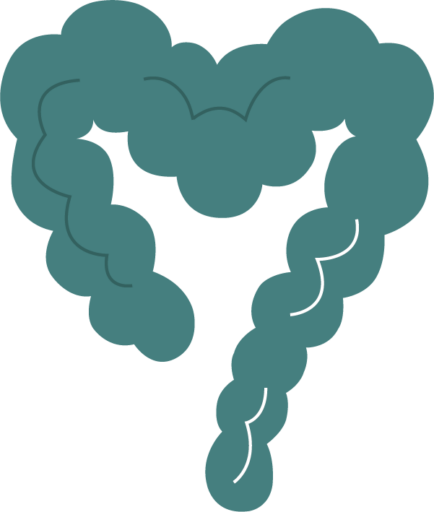
Glutamine and IBS
February 13, 2023
Glutamine has long been considered to have a positive effect on the gut, but studies on glutamine for IBS have been lacking. Recently, several studies have shown that it may reduce symptoms in PI-IBS and IBS-D. For those interested in trying it, we will review the current facts and research available.
Glutamine is one of the so-called non-essential amino acids and is found in foods such as glutamic acid, which is then converted into glutamine in the body. It is the most abundant amino acid in muscle tissue and blood. In the body, it can also be converted into glutathione, one of the body’s most important antioxidants. Some use it to increase muscle mass, but this effect has not been demonstrated in studies. In the field of dietetics, we may have seen glutamine as somewhat alternative, but fortunately, studies are now emerging that suggest we might begin using this supplement as an adjunct in the treatment of IBS.
Glutamine and IBS
Glutamine is an important energy source for the cells of the small intestine (enterocytes) and the colonocytes in the large intestine, and it helps prevent the spread of bacteria from the large intestine to other areas. Thus, it can contribute to a healthier gut microbiome. It has been shown that individuals with IBS-D have increased intestinal permeability (often referred to as leaky gut). Glutamine may help reduce intestinal permeability by affecting the tight junctions between the cells of the intestinal mucosa. When the concentration of glutamine decreases, intestinal permeability increases. There are also studies showing that individuals with PI-IBS experience reduced symptoms after treatment with glutamine.
Belly Balance digital treatment
In the Belly Balance app, you can log symptoms, maintain a food diary, scan products, find FODMAP lists, and much more to help you manage your IBS.
Try the app for freeGlutamine sources in the diet
Glutamic acid is primarily found in protein-rich foods such as meat, fish, poultry, eggs, legumes, and dairy products. Those who consume enough protein are likely to ingest sufficient amounts of glutamine. When the body is under stress, such as during illness, intense exercise, or insufficient food intake, the amount of glutamine in the muscles decreases, which may lead to a loss of muscle mass. It is also possible to take glutamine as a supplement, available in the form of capsules or powder.
Complement to FODMAP
When we work on treating IBS, we always start with diet since most people experience a quick effect from following the FODMAP diet. After that, there are several options. Some choose to work on stress management, while others try supplements like probiotics, digestive aids, or bowel-regulating preparations such as Husk. We see that glutamine can serve as a complement to dietary treatment and an additional tool in the toolbox for patients with IBS-D or PI-IBS.
Sofia Antonsson
Reg. Dietitian, Belly Balance
Read more about

IBS - What is it?
Bloated , constipated or having a gassy stomach? IBS or Irritable Bowel Syndrome is a functional gastrointestinal disorder, meaning no physical issues can be found in the stomach or intestines; they just don’t function quite as they should.

How the app works
Download the app and become part of our community. We assist you in achieving a calm and happy stomach through treatment and tools available directly in the app.

About FODMAP
By learning which foods upset your stomach, you can make conscious choices and get quick symptom relief. With the low FODMAP diet, you receive structured assistance in understanding which foods your body tolerates better than others. No more guessing and pondering – you get the answer straight away!

